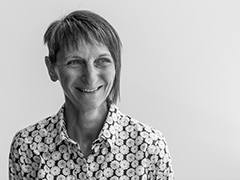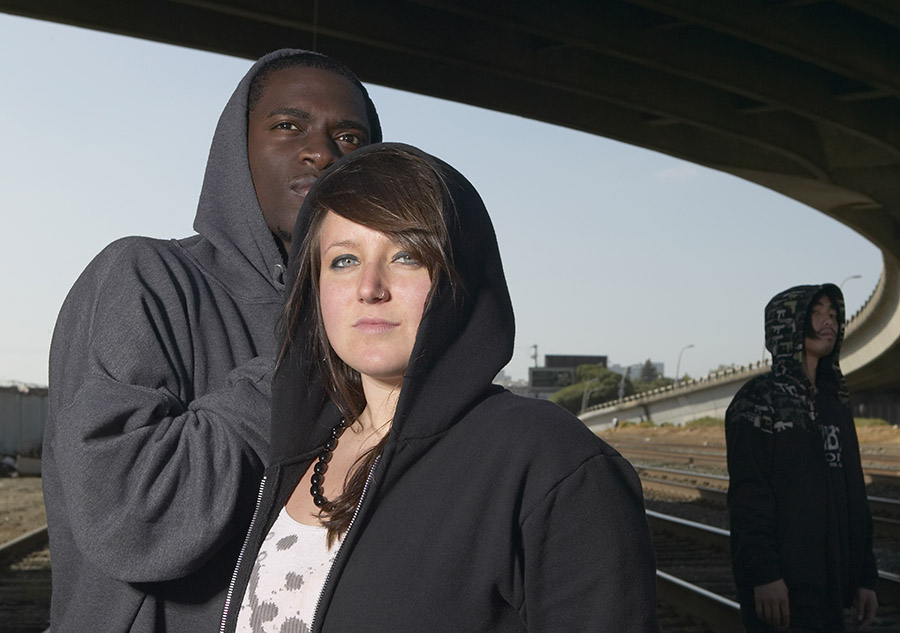Radical talk
An important and hugely pertinent international research project is being led by The University of Manchester to explore how and why young people become radicalised.

In response to growing public concern, the Dialogue about Radicalisation and Equality (DARE) project includes 15 partners in 13 countries and will run for 4 years. Funded under the EU Horizon 2020 framework, it will investigate young people’s encounters with messages and agents of radicalisation. How they receive and respond to those calls, and how they make choices about the paths they take.
The project adopts a critical approach, recognising that radicalisation discourse itself can entrench feelings of anger, alienation and stigmatisation that past research has found to be associated with radicalisation. It will investigate how sustained inequalities and perceived injustice impact upon radicalisation.
With a solid research background in issues faced by young people, Professor Hilary Pilkington and the team will focus on the 12-30 age group.

Professor Hilary Pilkington
Hilary is Professor of Sociology at The University of Manchester and Fellow of the UK Academy of Social Sciences.
Hilary says: “Young people are very widely perceived to be particularly vulnerable to radicalisation. Either because they’re biographically available – they don’t have the ties and obligations that older people might have to prevent them from becoming involved in these movements - or because they are perceived to be more open to radical ways of thinking and so would be more prepared to think about completely new ways of doing things, or acting outside the mainstream political thinking.”
The project’s ethnographic approach means it will study the real experiences of young people, looking at the ways in which they are exposed to radicalisation messages, and how they react to them. It will explore what young people understand as helpful debate about legitimate grievances and what they see as extremist, or designed to misinform or radicalise themselves or others.
What’s particularly interesting is that this project won’t just be looking at those who hold radical views. It will be equally concerned with young people who, in the same environments and engaging with the same information, choose non-radical paths.
Hilary says: “We know that the vast majority of young people who encounter radicalisation messages already have well worked through strategies of resisting them and countering them. We want to look at these strategies and discover how they might be of help to others through peer-to-peer engagement, which we know works. It’s a way of garnering what these young people are doing themselves and helping to spread those positive messages, rather than bringing in external agencies to instruct them.”

The project explores what young people are doing themselves to resist radicalisation.
The DARE project is a natural evolution from Hilary’s previous research, exploring the potential for receptivity to radical right wing agendas among young people. She recently published an award-winning book, Loud and Proud: Passion and Politics in the English Defence League – an ethnographic study of grassroots activists in the English Defence League (EDL), in which she explores what brings young people to become active in what is widely perceived to be an extreme right or Islamophobic movement.
Hilary is passionate about using dialogue as an effective approach to get to the root of the issues and to understand what individuals really think, and why. Building on the success of such dialogue in her EDL study, it is something that is now at the heart of the DARE project.
A key activity of the DARE project will be a series of community dialogue workshops, to discuss the issues around radicalisation and try and break through some of the barriers to talking openly about radical views.
“There is real value just in that opening up and talking. I found that with the EDL work, often people don’t have the opportunity to talk about their views to someone outside their inner circle. Just that exposure and that dialogue is incredibly powerful in terms of getting people to think differently, away from people who tend to share their views.”
“... radicalism isn’t inherently negative ... The real problem arises when radical views are not debated and contested openly.”
Through open, honest dialogue with those who engage with radical views, and those who reject them, Hilary and the team hope to get a fuller picture of why individuals react in different ways to radical messages, but, she says, they’re not looking for a solution to a problem:
“I don’t think we will ever ‘resolve’ radicalism – and do we want to resolve it? Many of the things that were radical causes in the relatively recent past are now mainstream – the suffragettes, views about parliamentary democracy as opposed to hereditary rights. So radicalism isn’t inherently negative or the ‘problem’ we are addressing. The real problem arises when radical views are not debated and contested openly. That can lead people into their separate bunkers where they are surrounded by those who think the same as them and their exposure to alternative understandings of the world becomes limited. It is that narrowing of young people’s horizons that DARE seeks to prevent by opening up space to talk about even the most difficult of issues.”
